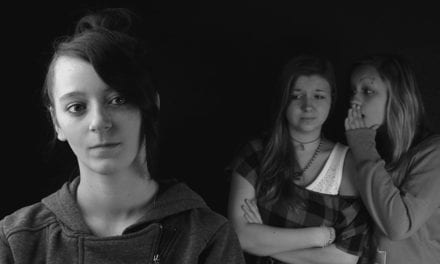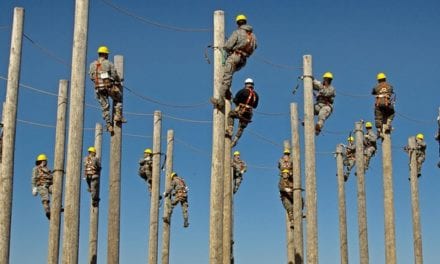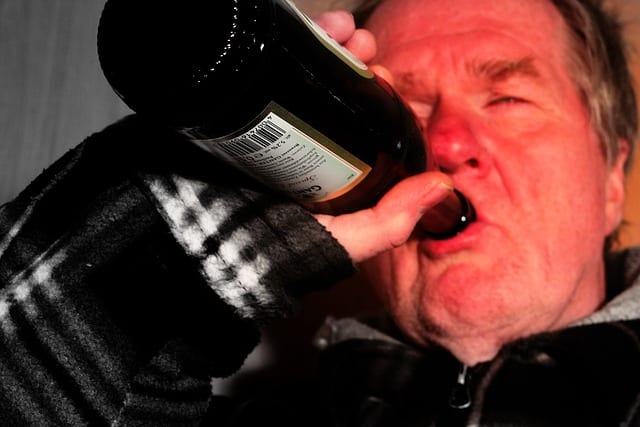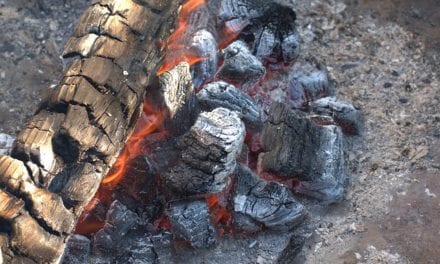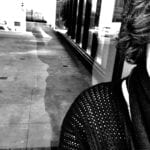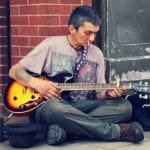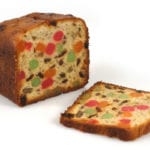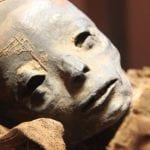But since reform’d by what we did amiss
We, by our sufferings, learn to prize our bliss.
~Astraea Redux, John Dryden
Father McNally is 40 and without hope. He can’t show it. The people of the parish depend on him for their own promise. It is Saturday again. Father Jerry and Father John cover Confession today, leaving Father McNally to (as he once wrote in his journal):
invest my day in prayer and preparation of a homily of hope which I shall spew twice each Sunday to those who choose to rest their asses on the pew’s red velvet. I must muster the strength to speak with the voice of a politician, the eyes of an angel, and the tongue of one who prays without ceasing. I must soften the steps of the faithful, lift the spirits of the discouraged, give assurance of grace to the guilty, and supply all the fluffy feelings they have come to expect from my most Holy insights.
It is finished,” he says to no one, for no one is with him. He clicks “Print” and three double-spaced pages of homiletic pontification, entitled Every Day is Sunday, come forth on the wings of his Canon laser printer. “Time for Mac to take his weekly walk,” he says. Depending on circumstances and location, Father McNally refers to himself as either “Father McNally” or “Mac.” He much prefers Mac, but that is not always the preference of others, especially those who confuse sacred with sanctimonious.
Father McNally walks to the door of his study and reaches for his jacket. He wears no collar, just a plaid flannel shirt and faded jeans. He appears out of place in the oversized room. It is almost Victorian with its bay window draped in sheers and tapestry curtains. A dark oak mantel, carved with cherubs, wraps the fireplace. The walls are matching oak bookshelves filled to overflowing. Oriental rugs soften steps on the hardwood floors. A ten-foot over-stuffed couch and two matching upholstered chairs, each with their own ottoman, converse in front of the fireplace. An unnecessarily large desk backs into the bay window and completes what Father McNally sees as a perfect setting for an Agatha Christie murder mystery.
He hates the room’s extravagance and pretense. He especially hates the large portrait of Bishop Alt hanging heavily over the fireplace. No matter where you stand in the room, the old man’s eyes glare back at you. At first glance, the bishop appears harmless. Look at him for a few moments, though, and he turns cruel, unforgiving, and enraged. Removing the portrait is unthinkable, so Mac has created what he happily refers to as his “Episcopus Flipophopus.” Each time he enters or leaves the room, he gives Bishop Alt’s portrait the finger and a wink. When others are around, he resists the urge to shoot the bishop the blessing bird and settles for a discreet and undetectable wink. Today, with no one around, Mac pauses by the door, winks, and lets the finger fly tall before he steps out of the study, down the hall, and through the back door of the rectory.
The day is the same grey as the recent change in his hair color and the edges of his unshaven face. It is about to rain, and far darker than a late morning should be. “I am but a wanderer, a nomad lost in a city of fools,” he says to himself, smirking at the triteness of his words. Ah, but so true, he whispers.
He walks this way each Saturday, thirteen blocks down Third Avenue, beyond Church Street to where the city turns to crumbs and uptown trickledown ceases to trickle or even drip. Here, children play on sidewalks, even in light rain. Elderly folks sit speechless on row-house stoops. In summer, white curtains hang still from open windows surrendering to the heat. Come winter, they will be taped over with newspaper against the cold. Always, the air sneezes bus fumes. If not for buses and children, there would be only whispers.
As usual, Soap stands on the corner outside “Luke’s Bar Nun.” Soap, the cleanest homeless guy in the world, reeks of Cashmere Bouquet. He has a deal with Mrs. Florian, the head of housekeeping at the downtown Hilton. In exchange for cleaning the hotel’s employee lounge and locker room each night, Flo (everyone calls her “Flo”) allows Soap to shower with used hotel size bars of Cashmere Bouquet, and sleep on the couch in the lounge. Every couple of days, Soap washes his clothes with the small bars of Cashmere Bouquet. If excessive scent’s a sin, Soap’s damned for eternity. Soap tells everyone he lives at the Hilton. Father McNally met Soap at the Thanksgiving Dinner the parish serves to the homeless. It was almost two years ago. Mac introduced Soap to Mrs. Florian, and they worked together to get Soap cleaned-up and off the streets for the winter. Soap’s arrangement has expanded to include breakfast in the hotel kitchen, in payment for helping unload the produce delivered in the dark of morning. Soap is always smiling.
“Hello, Mac.”
“Hi, Soap.”
Mac and Soap have an understanding. Mac will buy Soap a beer every Saturday, as long as Soap promises not to reveal that Mac is a priest. “Doin’ undercover work for God?” Soap once asked. “Way undercover,” said Mac, as they shook hands to seal the deal. Soap is a man of his word.
The single step-up to the front door of “Luke’s Bar Nun” is tiled in the small, black and white squares that you’d expect on the restroom floor at an old Greyhound Bus Depot, grout thick with dirt, tiles slippery from the day’s slight, steady rain. Mac holds the door open for Soap. They step into old air heavy with years of Calvert’s and Seven, beer, and endless smoke.
Luke takes great pride in the fact that nothing changes at Bar Nun. The wooden stool rails are worn to splinters. Their seats are covered in dark red vinyl with bits of stuffing, like un-ginned cotton, spying on the place through cracks patched with strips of mismatched tape. The ceiling is a dark gritty-yellow from the brush strokes of loitering smoke. The hardwood floor is a mosaic of cigarette burns, spills, stains and spots.
“Hi, Soap. Hello, Mac. What’s the good news?” says Luke, as he opens two Sam Adams and sets them on the bar in front of an empty stool. “Same old news, Luke,” answers Mac. Soap happily picks up one of the bottles, takes a long pull, winks at Mac, and walks to the other end of the bar. Mac sits down on the stool. He inhales and exhales through his mouth as he looks down the bar. The place is the same every Saturday, with the same faces, same drinks in the same hands, same ESPN on the same muted TV’s, mounted high in corners.
Mac never says much. He just listens, raising the occasional question. The conversations of the resident citizens seem the same from week to week. Taking attendance with his eyes, he starts at the far end of the bar with Pete. Pete, who is forever worrying about his wife catching him cheating, cannot keep his lust in check or his zipper zipped. This morning, he is describing in the most vivid detail the physical attributes of the receptionist he just hired at his trucking company. He is telling all this to Mason, who has been out of work for nearly a year and a half. Mason makes no secret about how ridiculous it is that he has no job, but others do. “Give me one week, and I will outperform every one you on the job. One week! Especially yours!” He shouts pointing at Luke, who, like everyone else in the place, ignores him. Not many people talk to Mason.
“Fat Jack” is next. He is finishing one of the three bacon and cheese sandwiches he buys at the bodega next door to Luke’s every Saturday. Fat Jack is always going to start a diet tomorrow. He chews while listening to the rant of “Fist.” Fist has the letters F-I-S-T tattooed across the fingers of his right hand. He will tell anyone who will listen what an asshole his boss is. If you wind Fist up, he will grow red with wrath to a point where you think he might explode.
In the middle of the lineup is a guy everybody calls “Joey Luck.” He sits all afternoon, scratching lottery tickets. Over the years, Joey Luck has gambled more than enough money away to buy the Camaro he covets. Over in the corner booth, totally ignored, is “Sal the Sleeper.” Sal spends his days curled up in the back-corner booth, sleeping off the night before. It is Saturday at Luke’s Bar Nun. Mac feels at home. Here, everyone calls him “Mac” and he likes it that way. This is the best part of his week, sitting at Luke’s, listening to the citizens.
“Okay, Luke, let’s do it.”
“Sure thing Mac,” says Luke, reaching into the cooler, pulling out eight beers. It’s a weekly ritual for Mac to buy a round of beer for everyone, except Sal the Sleeper who is sleeping. When Mac buys, Luke passes around a full can of Planters peanuts. When everyone has a beer and a handful of peanuts, they hoist their beers high. Mac says, “Nuts to You!” and all the guys say, “Nuts to you too!” as they eat the nuts and wash them down with a slug of beer. One by one, they say thanks to Mac, before resuming their conversations.
After drinking the three beers he allows himself, Mac puts enough cash on the bar to cover the tab, stands up, waves and says “Peace,” over his shoulder as he walks out the door.
The rain continues to be light and steady. Mac pulls up his jacket collar and begins the long walk back the way he came. The afternoon grows darker still. He walks on thinking with a smile, “I am a wanderer, a nomad lost in a city of fools.”
Returning to the rectory, he goes directly to his study. He shoots a quick finger and a wink at the bishop while pulling his left arm from his dripping jacket sleeve. He throws the jacket over a chair, walks to the fireplace and turns the chrome handle that ignites the gas log. Immediately, flames are dancing around the artificial logs, flakes of asbestos glow as fake embers and the chill in the room begins to fade. The rain grows harder, pelting the windowsill. Outside, street lights toss dark shadows against the church.
Father McNally kicks off his shoes and walks in stocking feet to the printer by his desk. Three pages of tomorrow’s homely are waiting there. He picks them up, takes his pen, and goes to the couch. He stretches out in the warmth of the fire and begins to read: “Every Day is Sunday. Every Sunday is Easter….” He stops to stare into the fire. After a while, a very long while, he prays:
“Lord, what if I tell them the truth? What if I tell it like it really is. What if I stand up there tomorrow and say, ‘Every Day is Saturday! Sunday is always tomorrow.’ What if I say that?”
Mac is still. He listens, hearing only the very quiet hiss of the gas feeding the flames. He looks up at the bishop and raises his arm. His hand curls and releases the single finger forming his own liturgical blessing. He holds it high until his arm wearies, flops down, and hangs beside the couch, almost touching the floor. His eyelids grow heavy. He drifts off to sleep mumbling, “Yeah, Lord, what if I tell them that?”

